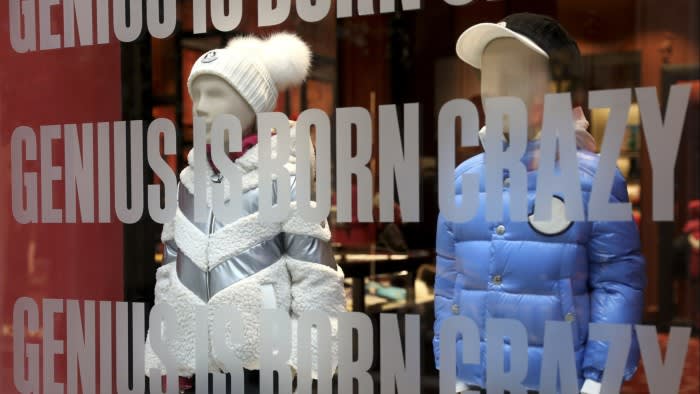Unlock the Editor’s Digest for free
Roula Khalaf, Editor of the FT, selects her favourite stories in this weekly newsletter.
In poolside etiquette, tossing one’s towel over a sunlounger is taken as an aggressive move. That is true in mergers and acquisitions, too. Italian lender UniCredit, which nabbed 21 per cent of its reluctant quarry Commerzbank, is a case in point. Yet in the genteel world of luxury, it is possible to drape one’s silk scarf over another’s outfit — and to do it with style.
Look no further than LVMH, which has acquired a minority position in Italy’s Moncler through an investment in founder Remo Ruffini’s “Double R” holding company. Under the terms, the luxury behemoth can raise its stake to 22 per cent of Double R, which will in turn increase its holding in the down-jacket maker to 18.5 per cent. That would give LVMH a see-through stake of up to 4 per cent. Moncler will continue to be controlled by Ruffini.
It is not hard to see why Ruffini welcomed LVMH’s interest. His hold on Moncler had been weakened by an outflow of co-controlling partners, including Singapore’s Temasek and Italy’s Rivetti family. LVMH’s entry into the capital structure allows him to tighten his grip, to a level that will further dissuade any potential hostile suitors.
Having a luxury conglomerate as a partner will prove invaluable should Moncler — which agreed to buy Stone Island in 2020 — decides to do a little more consolidating of its own. China’s stimulus package has returned some glitz to the sector’s downtrodden share prices. But smaller or turnaround brands are struggling with more discerning luxury consumers. Breakout success Moncler might like a rummage through the discount rack.
Whatever Moncler decides to do, it will benefit from entering into LVMH’s orbit. It will give the relatively small Italian group extra heft to attract talent, nab advertising opportunities and — in the industry’s latest battleground — secure prime locations for its expanding retail footprint.
For LVMH, too, the move looks smooth. The deal price has not been made public, but — prior to Friday’s 10 per cent pop on the news — Moncler’s stock had fallen nearly 30 per cent since March. LVMH founder Bernard Arnault is at the very least making a savvy investment. And while Ruffini is not a seller of Moncler today, it is hard to see smaller groups thriving indefinitely in an industry dominated by giants.
Arnault is no stranger to early bookings. He took a 3.2 per cent stake in Tod’s upon its flotation in 2000. The group has now agreed to a take-private by LVMH-adjacent private equity house L Catterton. The wolf in cashmere has again marked his territory.


